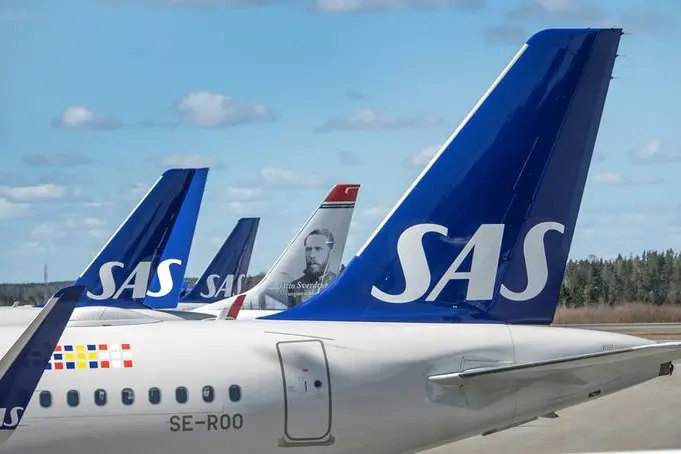PHOTO
Scandinavian airline SAS expects a busy summer season, it said on Thursday as it reported a reduced second-quarter pretax loss.
The Nordic airline, like others in Europe's aviation sector, has struggled with challenges after the COVID-19 pandemic, such as labour issues and high costs, that have prevented a swift exit from bankruptcy proceedings.
However, SAS and other airlines have registered better than expected bookings for the coming months as growing numbers of people travel again after prolonged pandemic disruption.
Chief Executive Anko van der Werff said he was positively surprised by demand, despite initial worries that energy pricing and inflation would hamper bookings.
"We are seeing, both from a corporate perspective and from a personal perspective, that people are prioritising travel," he told Reuters.
For the aviation sector as a whole he added, he believed the summer would also be stable, despite some hiccups.
"We've all seen the strikes in Germany and in France, so there will be 'pockets of resistance' or, rather, areas that are more complicated, but overall much better than last year."
Despite a promising volume of bookings, SAS said high fuel jet prices and currency exchange rates continue to be headwinds.
The airline posted a pretax loss of 1.41 billion Swedish crowns ($138.9 million) in the three months to April 30, against a year-earlier loss of 1.57 billion, ahead of the figure of about 1.8 billion expected by Sydbank analyst Jacob Pedersen.
The analyst said that as other airlines in Europe had become increasingly positive on earnings projections over the summer it would not have been too surprising to see an upgrade in SAS's earnings expectations for the year.
"We got some moderately positive comments regarding the overall market situation, but not to an extent that, in my opinion at least, is on par with what we've seen from other airlines," the analyst said.
Shares, which have a high likelihood of being worthless after the bankruptcy proceedings, were down 4% by 0726 GMT. (Reporting by Marie Mannes; Additional reporting by Agata Rybska; Editing by David Goodman and Clarence Fernandez)





















